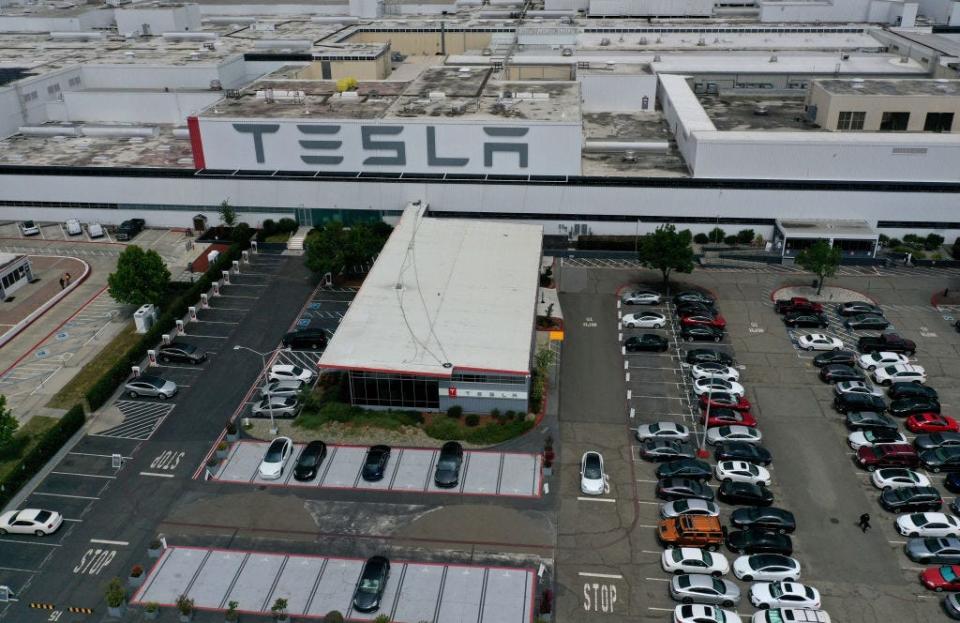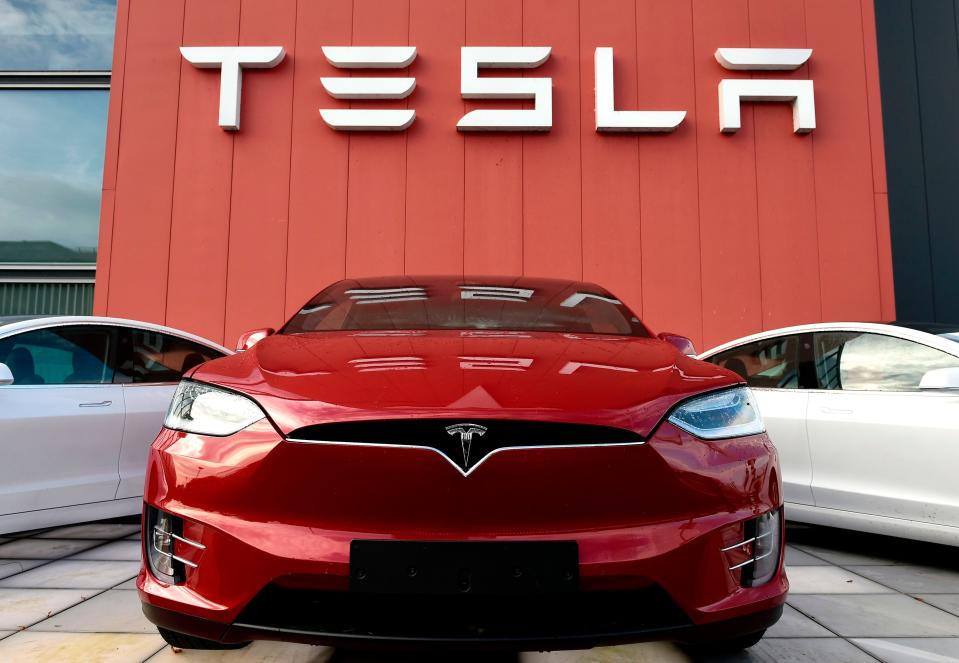Tesla is hiring again. 10 engineers describe what it takes to work at Elon Musk's car company.

Tesla is hiring again after laying off more than 10% of its staff in the spring.
Tesla's hiring process can involve up to nine interviews, a presentation, and a letter to Elon Musk.
Ten Tesla engineers broke down the process and gave tips for getting a job at Musk's company.
Tesla is hiring again after mass layoffs.
"This is a pretty normal cycle at Tesla," a former manager at the carmaker told Business Insider. "We trim down and then later on bring in new people. Rinse and repeat."
In May, Tesla removed over 3,000 job postings on its site after Elon Musk told staff the automaker planned to cut more than 10% of its workforce. But Bloomberg found that the company had posted nearly 800 open roles on its careers page over the past few weeks.
A role at one of Musk's companies is a coveted position for many Big Tech workers. The electric-car maker said it received more than 5.9 million applications in 2023, and engineers at Tesla say it's no small feat to land a role at Musk's best-known venture.
But landing a job there isn't easy.
Tesla's hiring process for engineers can require as many as nine interviews, a series of tests, and, in some cases, a letter to Musk himself.
Business Insider spoke with 10 current Tesla engineers about what it takes to work at the company. The employees spoke on the condition of anonymity to protect their employment, but BI verified their identities and roles at Tesla.
Several engineers said that it took multiple attempts to land a role at the company and that the process could be laborious. Typically, applicants must start from the beginning when applying for a new role externally.
From start to finish, it can take up to six months to receive an offer letter.
The first step in the application process is pretty standard
Tesla typically responds to a successful application by setting up an interview with a recruiter or a human-resources employee.
Tesla engineers said they secured an initial interview by sending their résumé into an application on Tesla's careers page, chatting with a Tesla representative at a networking event, or having a colleague pass along their résumé through the company's internal recommendation system.
"Sometimes it really is who you know at Tesla," one engineer who has worked at the company for six years said. "It helps to go to a feeder college where a classmate can help recommend you for a role."
Recruiters often sift through thousands of applications, giving interviews to a maximum of only 20 or so applicants, according to four engineers who've been involved in the hiring process. They said only about half of those candidates would make it to the next step.

After the initial culture-fit interview — which includes traditional questions about why people want to work at Tesla and how they jibe with others — candidates who progress typically chat separately with a manager and at least one engineer from their prospective team. These interviews are more technical and sometimes include a take-home or live test.
"Tesla takes a no-bullshit approach," one engineer told BI. "At other companies, you can sometimes get away with saying something to sound impressive. You can't do that at Tesla. If you don't know something, own up to it, because they will always ask the follow-up questions."
Panel interviews can last up to 6 hours
The next step in Tesla's hiring process involves a presentation and a series of rapid-fire interviews that can take four to six hours.
Applicants are typically told to present on a previous project for 15 to 30 minutes, followed by a Q&A session on the project. Tesla workers said it was best for early-career applicants to present on college group projects or personal ventures.
Four to six engineers sit in on the presentation and later break off to interview the candidate on their own for about 30 minutes each.
"We try to leave it pretty open-ended because it's a good way to find red flags," an engineer who has been involved in the recruiting process said of the presentation prompt. "We tell them not to present something confidential, and that's the biggest red flag if they present something like that. It's an easy no if we know they won't be trustworthy."
Some Tesla engineers said they spent more than 40 hours preparing for the presentation over several weeks. The panel can take place over Zoom or in person. It also includes a short break in the middle of the session to give panelists time to take lunch.

"You need to make sure you know the technical details of your project inside and out," one engineer said. "It doesn't have to be the most complicated tech so long as you can talk about what you've done in great detail. You need to be able to tell them why you approached it the way you did and address other ways of accomplishing it as well."
One engineer with knowledge of the process said that after the panel, the employees would meet to take a "blind vote" on the candidate, meaning the panelists all submit their scores at once. Candidates are scored on a scale of one to four. The engineer said that if a single panel member were to give the candidate a score of one and could back up their opinion, the individual's application would usually be rejected, while a score of a three or a four would be viewed as a sign of approval for the prospective hire.
Two engineers said only about half the applicants who made it to the panel stage would be selected.
Sit tight — it could take 6 months to land the job
Depending on the role, applicants may be offered the job after a successful panel interview. For higher-level positions, candidates can go on to interview with director- or vice-president-level employees.
Three workers said some applicants were required to fill out a form that would be sent to a VP- or director-level worker outlining three reasons they would be a good fit for Tesla. Some of the notes would even be passed on to Musk, the engineers said. Last year, the Tesla CEO said in an email to staff that he must approve all new hires.
From start to finish, the entire process could take one to six months, the engineers said. Seven engineers said Tesla had the most intensive application process they'd seen in the industry.
"Half the time we miss out because we're too slow," an engineer with knowledge of the hiring process said. "We know it, but it's set up in some ways to find the people who are so gung-ho they're willing to wait. They're people who'd probably get a higher base pay at a different company, but they have the opportunity to cash in on Tesla stock too."
A Tesla spokesperson didn't respond to a request for comment.
Do you work for Tesla or have insight to share? Reach out to the reporter from a nonwork email and device at gkay@businessinsider.com or 248-894-6012.
Read the original article on Business Insider

 Yahoo Autos
Yahoo Autos 